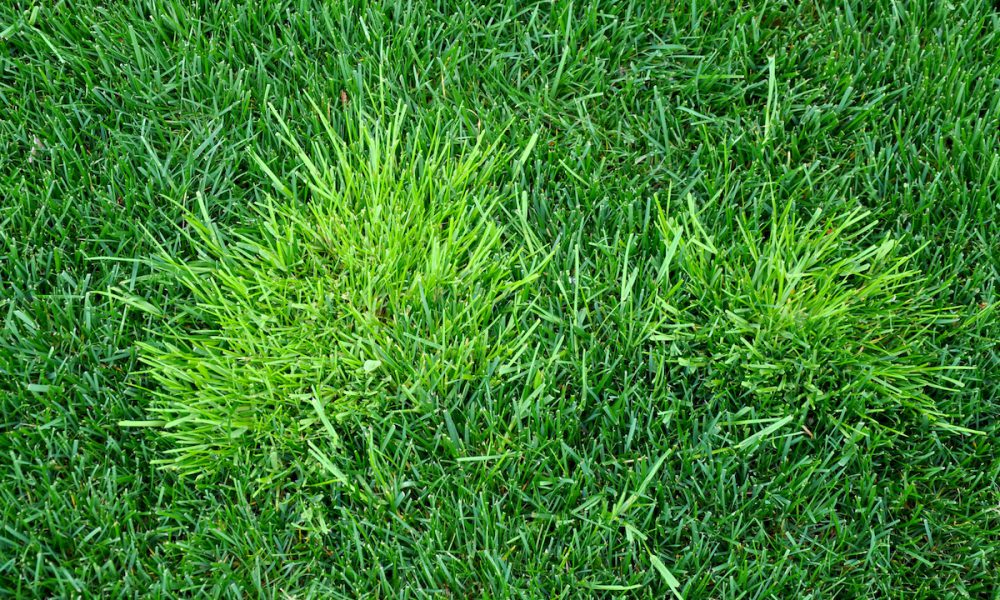
Annual bluegrass (Poa annua L.) is a low-growing, cool-season grass that grows in dense tufts. In a 2015 survey conducted by the Weed Science Society of America, annual bluegrass (Poa annua L.) was identified as the most troublesome weed in managed turfgrass systems throughout the United States.
Annual bluegrass has high levels of genetic diversity and can rapidly adapt to different climates and management programs, making it particularly challenging to control. Existing annual bluegrass management programs rely heavily on herbicides in all four major turf sectors (golf, sod production, athletic fields, and residential lawns). Turfgrass facilities can easily spend hundreds of dollars per acre to manage annual bluegrass on their premises.
Proper mowing and a lawn care program that addresses plant health and disease control will go a long way toward stopping poa annua from developing. If your Georgia lawn already has poa annua, you can still do something to manage the unappealing weed. And it’s wise to treat it because once poa annua dies out, you’ll end up with bare spots in your turf.
That said, herbicides are used to address poa annua. A lawn can be spot treated in problem areas. Otherwise, herbicides should be applied when warm-season grasses are dormant to ensure that healthy turf is not affected. Because poa annua is a diverse species, some types might be more easily treated than others.
Weeds move in when there’s “room” in your turf. So, you’re more likely to have a problem with poa annua in your Georgia turf if your lawn faced fungal pressure in summer, has dead or dying spots because of heat pressure, or is otherwise unhealthy. At HighGrove Partners, we focus on proper lawn maintenance practices that naturally prevent weeds and disease from developing (poa annua).
Proper identification, prevention, and treatment of poa annua on a yearly basis will keep your commercial property mostly free from this unsightly grassy weed.
If you’ve got a question about a problem in your lawn, don’t hesitate to fill out this simple contact form and we’ll get in touch with you.
Preventing Lawn Die-Off from Annual Bluegrass
During the winter months in Cumming, Georgia is the only time most people want a uniform brown lawn. You may be seeing some annoying green weeds starting to sprout up in your lawn this time of year. The best way to control these weeds during the winter months is through a pre-emergent weed preventing application in the fall.
If this happens you will need to use a selective post-emergent weed control to get rid of them. It may take 4-6 weeks for the weed controls to take effect due to the cold temperatures, weed controls work slower when it is cold.
The Most Annoying Annual Winter Weed: Annual Bluegrass
Annual bluegrass seeds begin to germinate in late summer or fall as soil temperatures drop below 70°F. Seedlings mature in the fall and overwinter in a vegetative state. Late spring and early summer is when the seed is produced. Individual plants can produce over 350 seeds. Seeds can remain dormant in the soil for several years before germinating.
Annual bluegrass (Poa annua) is a low growing cool-season grass in the family Poaceae. Annual bluegrass leaf blade tips are prow-shaped, and leaves tend to be crinkled at the midsection. The ligule is membranous and rounded.
What Are The Best Methods To Prevent Annual Bluegrass In Turf?
A bacterium is being considered for registration as a bioherbicide. The bacterium, Xanthomonas campestris pv. Poae, infects, and suppresses the growth of annual bluegrass without affecting desirable turfgrass species. It infects Poa plants through wounds in the stem and leaf tissues and multiplies in the vascular system, causing wilting and death of the plants.
A primary objective of this work is to better understand how resistance is occurring in annual bluegrass populations at the physiological and molecular levels. The two mechanisms being evaluated in this work are target-site resistance and non-target-site resistance. Target-site resistance occurs when the intended location for herbicide binding undergoes a change in structure.
Your Best Bet is Hiring a Professional Lawn Care Maintenance Company
The key to preventing annual bluegrass is to maintain a regular lawn maintenance schedule with a professional lawn care company.
If you need professional help contact Houseman Services at 706-769-7826 or click here to contact us now. You may find it is cheaper and easier to have a healthy, beautiful lawn by hiring the pros here at Houseman Services.